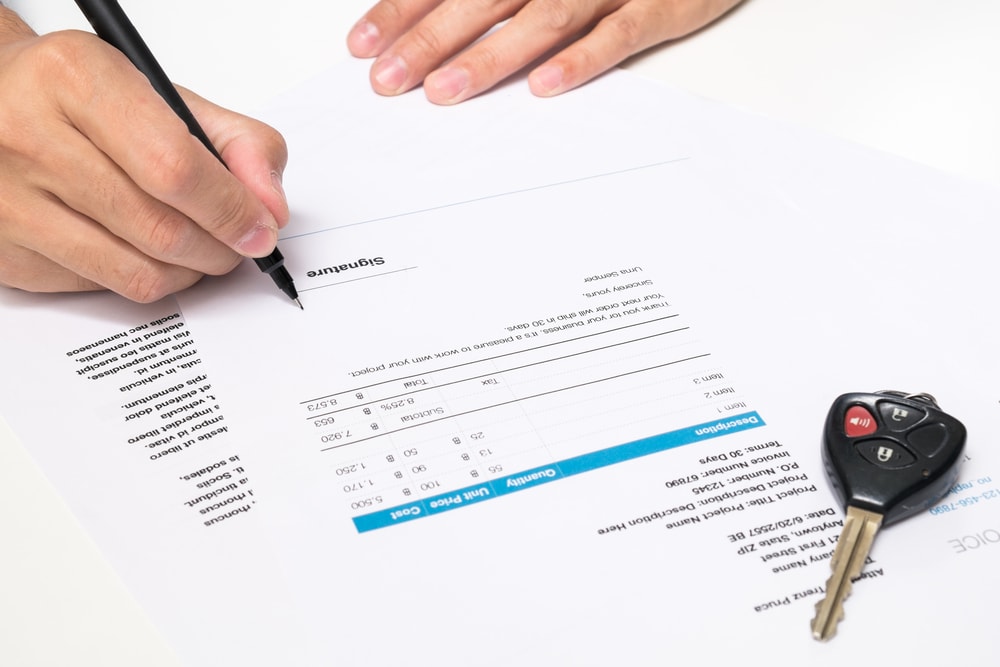Essential Car Paperwork: What to Keep Inside

Before you start your journey, ensure your vehicle is equipped with the necessary legal and practical documents. While it might seem straightforward, keeping the correct car paperwork in your glove compartment or wallet can save you a lot of trouble when dealing with traffic stops, insurance claims, or even when selling your car. Let's delve into what you should have on hand.
Vehicle Registration Documents

The vehicle registration document is fundamental as it proves you are the legal owner or have permission to operate the vehicle. This document:
- Provides the car's make, model, year, and VIN (Vehicle Identification Number).
- Displays the registration number (plate number).
- Indicates the registration period, reminding you when it needs renewal.
Driver’s License

Perhaps the most critical document of all, your driver’s license, which:
- Validates your right to drive.
- Should always be up to date and compliant with state regulations.
- May require you to carry endorsements for specific vehicle types if applicable.
Insurance Policy

Car insurance is not just recommended; it's often legally mandatory. Here's what your insurance policy should include:
- Proof of insurance or the ID card, which should display coverage details.
- Policy number and the insurance provider's contact information.
- Coverage limits, deductibles, and details about third-party liability.
Bill of Sale

If you're selling or have recently purchased a vehicle, keep the bill of sale:
- It details the transaction, including the date, price, and contact information of both parties.
- Provides evidence of ownership transfer and may be needed for registration updates.
Maintenance Records

Maintenance records can:
- Reflect your commitment to keeping the car in good condition.
- Help when resolving warranty issues or when selling the vehicle.
🔧 Note: Regular maintenance not only keeps your car running smoothly but can also boost its resale value.
Emissions Certificate

If your area requires emissions testing, make sure to:
- Have a valid emissions certificate on hand.
- This is important if you're planning to move to another state or country with stricter regulations.
Rental or Loan Agreement

For those driving rented or financed vehicles:
- Carry the agreement that outlines your obligations and limitations.
Organizing Your Documents

A well-organized system ensures:
- Easy access to documents in case of emergencies or routine checks.
- Protection from damage or loss through proper storage solutions like waterproof folders.
📌 Note: Consider keeping digital copies backed up on cloud storage or a USB drive for added security.
Having the right paperwork ready can turn what might be a stressful encounter into a quick and hassle-free process. Whether it's for proving ownership, insurance coverage, or regular maintenance, these documents are essential. Keeping them organized and accessible is not only a legal necessity but also a wise practice for any vehicle owner.
What is the most important car document to keep in my car?

+
The driver’s license is the most crucial document, as it is your legal authorization to operate a vehicle.
Do I need to carry my insurance card?

+
Yes, having proof of insurance on hand is legally required in most places to prove you have the necessary coverage.
What should I do if I lose my vehicle registration?

+
Immediately contact your state’s DMV (Department of Motor Vehicles) to report the loss and apply for a replacement.
How long should I keep my maintenance records?

+
It’s recommended to keep them as long as you own the vehicle, particularly for warranty claims and resale purposes.
What happens if I get stopped by law enforcement without the proper documents?

+
Law enforcement may issue a citation, which could lead to fines, points on your license, or even vehicle impoundment.



